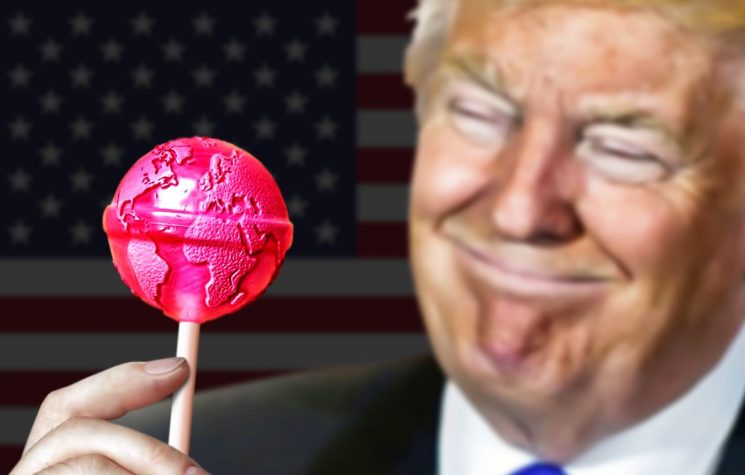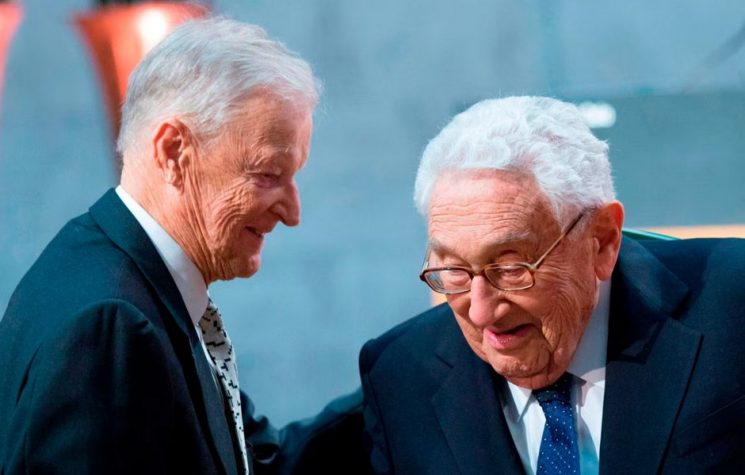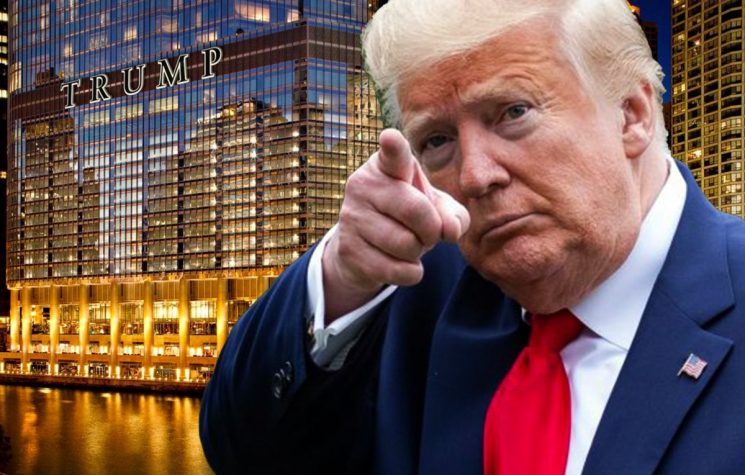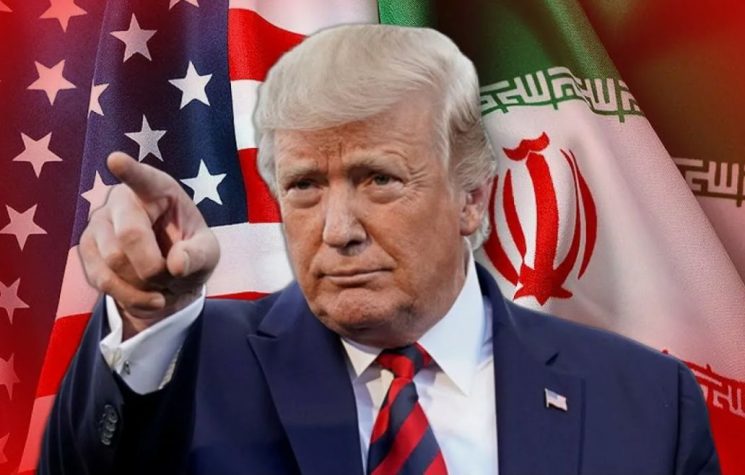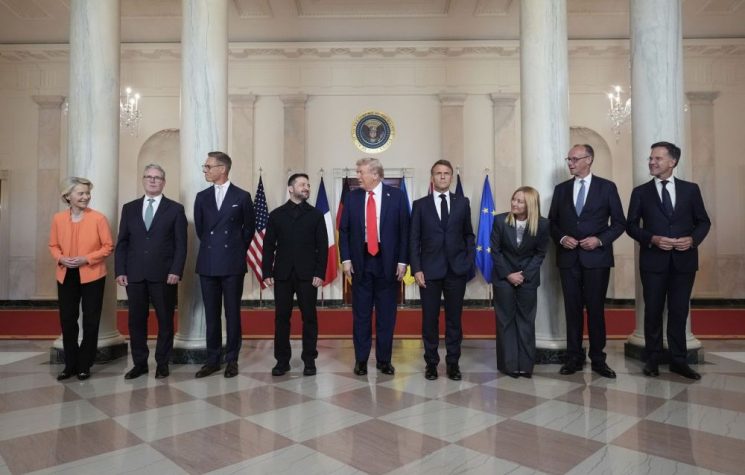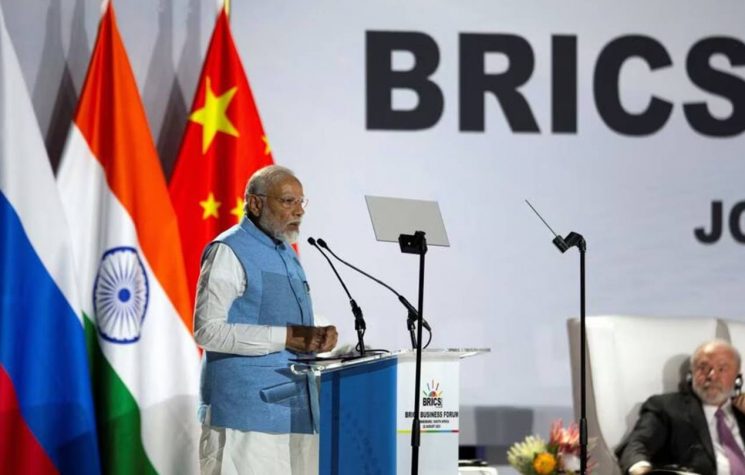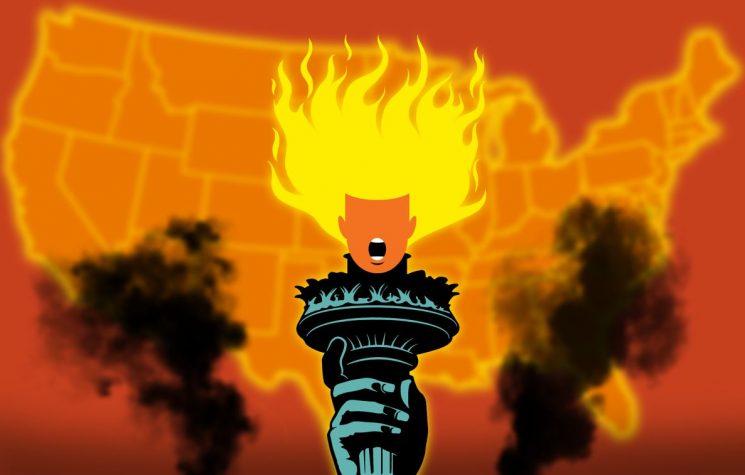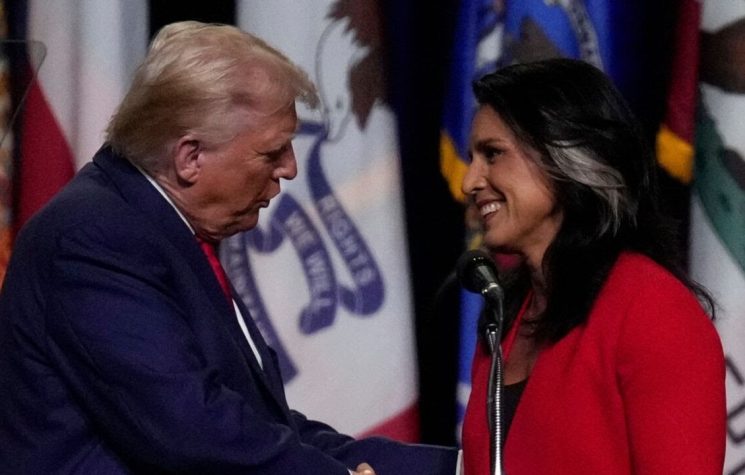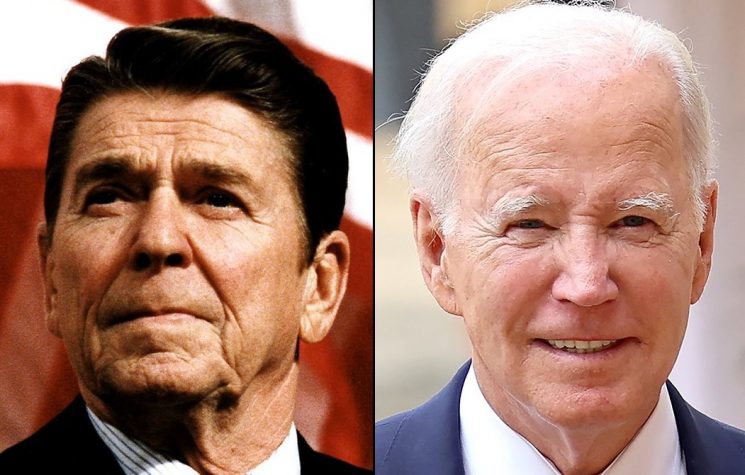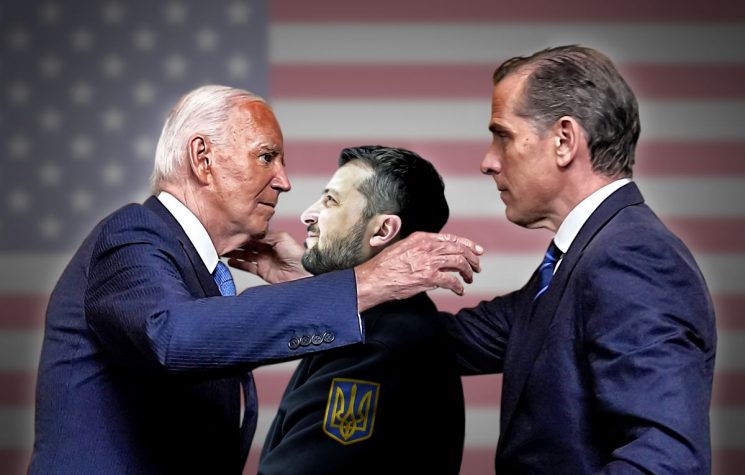The myth of America trudges on with some new labels attached but otherwise pretty much the same, Philip Giraldi writes.
It is sometimes difficult to absorb how much the United States has changed in the past twenty years, and not for the better. When I was in grade school in the 1950s there was a favorite somewhat simplistic saying much employed by teachers to illustrate the success of the American way of life that prevailed at that time. It went “What’s good for General Motors is good for America” and it meant that the U.S. version of a robust and assertive capitalist economy generated opportunity and prosperity for the entire nation. Today, having witnessed the devastation and offshoring of the domestic manufacturing economy by those very same corporate managers, such an expression would be rightly sneered at and considered risible.
Currently the politically motivated expressions of national greatness tend to honor America’s quality rather than the jobs and prosperity that it is able to generate. Presidents speak of the country’s “Exceptionalism,” as well as it being a “force for good” and “leader of the free world” with all that implies. That Americans are now in fact both poorer and less safe has generated its own national myth, that of a country beleaguered by terrorists who despise “our freedom” and which has been stabbed in the back by others, mostly in Asia, who have been engaging in unfair practices to bring America down. President Joe Biden’s gang of apologists has as well been fixated on the positive assertions that “America is back” and that the president will “build back better,” surely meaningless expressions that reflect the vacuity of the Democratic Party pre-electoral hype that Donald Trump had led the country to perdition.
President Joe Biden’s United Nations address three weeks ago was indeed largely Trump without all the bluster, threats and admonishments. He lied to the world leaders that: “I stand here today, for the first time in 20 years, with the United States not at war.” According to the latest available information, the U.S. was involved in seven wars in 2018: Afghanistan, Iraq, Syria, Yemen, Somalia, Libya, and Niger. Now that Afghanistan is nominally over, the number of current American wars is six officially, though none of them are actually declared by Congress as demanded the Constitution. If one includes clandestine counter-terrorism operations the real number is certainly much higher.
Joe Biden issued a call for all nations to work together to deal with transnational and even global threats like climate change and the pandemic, promising “relentless diplomacy” from the United States with a pledge that “we will look ahead, we will lead.” The response by the audience was predictably tepid as no one asked Joe whether anyone really wanted to be led any more, most notably America’s oldest friend and ally France, which was recently stiffed on a submarine deal by the White House. There are even reports that Biden is on bad terms with Great Britain, usually a completely reliable partner in crime. It was as if the U.S. president were reading from the “General Motors” script, having forgotten to refresh himself on what happened more recently in the debacle retreat from Afghanistan, which was not mentioned at all.
But it wasn’t all sugar and spice as Biden demonstrated his required toughness, cautioning Iran and skewering those who do not “…give their people the ability to breathe free, …who seek to suffocate their people with an iron-hand authoritarianism. The authoritarians of the world, they seek to proclaim the end of the age of democracy, but they’re wrong.” He was speaking, somewhat gratuitously, about Russia and China while also failing to mention the chaos on the U.S. southern border, demonstrating once again that everything is susceptible to change, but not in Washington.
To be sure, perhaps the most interesting aspect of the speech was the complete lack of self-awareness that the world has moved on without the United States, which has been locked into a certain foreign policy mindset since 9/11. In the past two decades Washington has invaded and brought about regime change in Afghanistan and Iraq, and has attempted to do the same unsuccessfully in Syria. It has openly intervened in the electoral process in Ukraine, which brought about a change of government that also generated a major crisis with Russia. It joined together with European allies to overthrow the Libyan government, reducing that stable and prosperous country into what is currently little better than a gangster and terrorist stronghold. It has more recently been seeking to undermine the elected government in Venezuela and has worked assiduously to wreck that country’s economy. It has interfered in Cuba, Bolivia and Ecuador and has dealt out devastating economic sanctions on adversaries like Iran.
It should be noted that all those initiatives, which Joe Biden might describe as “leadership,” took place under both Democratic and Republican Administrations, suggesting that if there is consensus in Washington it likely can be found in the willingness to wreck other nations. And Joe denounces “authoritarian” regimes without recognizing that many Americans have observed how the United States is itself becoming a model totalitarian state, irrationally obsessed with war while also having a health care system that has been ranked as one of the worst in the developed world. Witness the Patriot Act and the Authorization for the Use of Military Force, which have empowered any president to go to war without being endangered by a foreign threat. And then there is the Military Commissions Act which permits the indefinite imprisonment of terror and other suspects without having to charge anyone with a crime. And what about the prisoners still held without trial at Guantanamo after twenty years, or the Obama initiated policy of assassinating U.S. citizens overseas using drones? Or using drones to wipe out entire wedding parties while imprisoning the whistleblower Daniel Hale who had the temerity to reveal that 90% of the drone deaths in Afghanistan were of innocent bystanders who fit a “profile”?
And then there is the handling of the COVID-19 virus vaccination program at home, making it mandatory if people want to stay employed or in school. Or have a government job. The Biden Administration is now making health care decisions that impact directly on all Americans. Joe Biden is all for that and some in his administration are calling for mandatory booster vaccinations to include everyone who is already allegedly protected. Many Americans are resisting the government policies and there is growing dissent from the scientific and medical community over the efficacy of the vaccines, to include some legitimate concerns that they do more harm than good.
The government is also planning on looking at everyone’s bank accounts, an enormous invasion of privacy. A proposal working its way into law would require all banks to report directly to the Internal Revenue Service (IRS) all relevant information on any account that has more than $600 in transactions in a year. That would mean nearly all accounts and one can combine that with continued government surveillance of the phones and emails of citizens who have not been involved in any criminal activity plus increased broadening of domestic terrorism legislation and guidelines which will turn half the population into “suspects.”
So, the myth of America trudges on with some new labels attached but otherwise pretty much the same. Many would argue that it is time for a reboot, to return to constitutionalism, small government and an end to pointless foreign wars and interventions. But to do that would pit individuals and small groups against some very powerful interests, i.e. the defense industry, big pharma, and government itself, which sees its natural role as one of growth. It is an unbalanced struggle, but it must be won if the United States of America is to survive with some basic freedoms intact into the 22nd century.



















